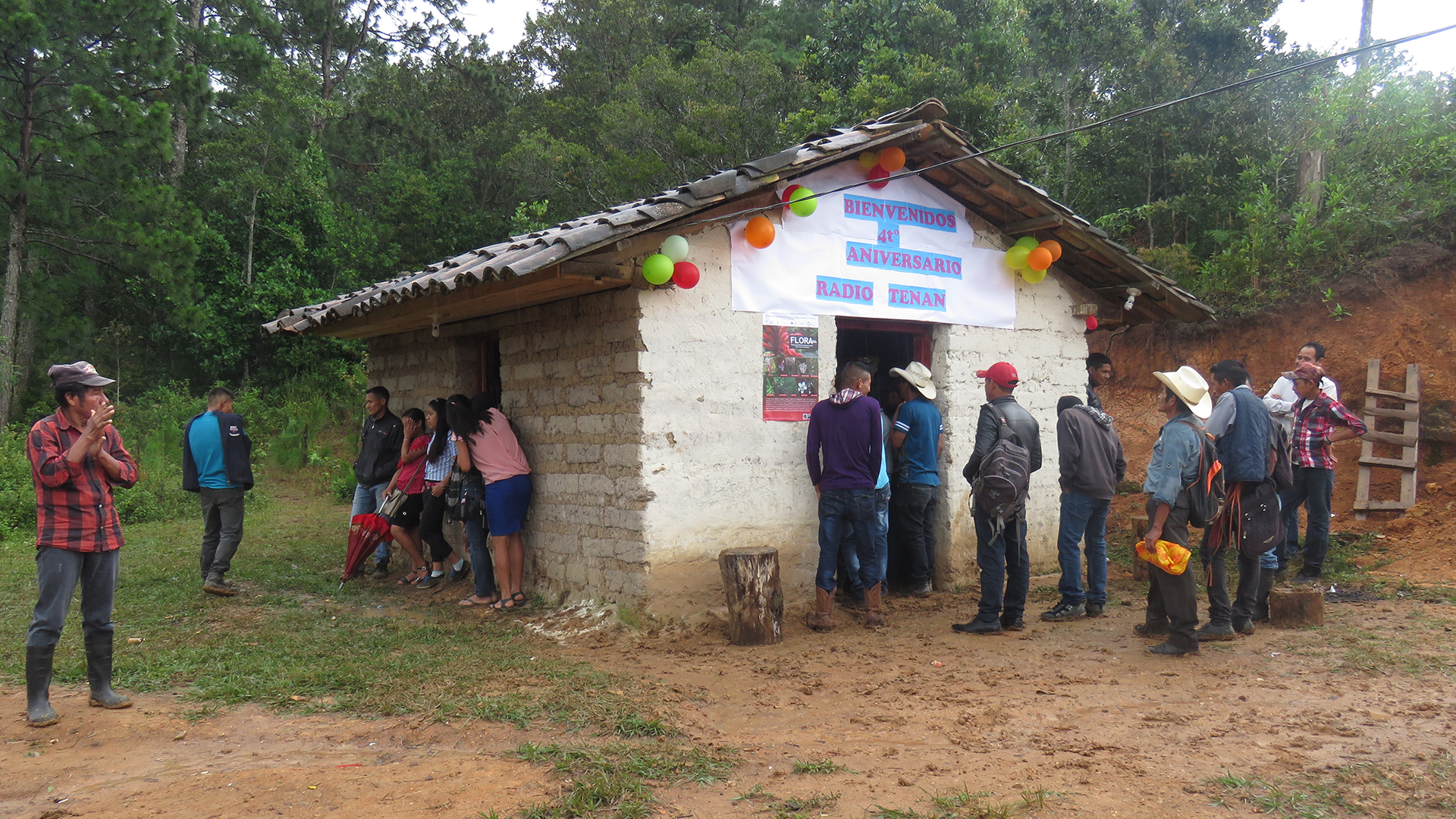
The powerful voice of the Lenca people
Radio presenter Martina López provides environmental education over the airwaves in a Honduran biosphere reserve.
Virtually everyone in San Marcos de Caiquín knows Martina López – or at least her voice. After all, the 37-year-old was the first female presenter to work for Radio Comunitaria Tenán, a free, indigenous broadcasting station based in western Honduras. What is unique about this particular radio station is the area it covers: it operates from the heart of the Cacique Lempira – Señor de las Montañas biosphere reserve, which is home to around 30,000 people, of which 30 per cent – including López herself – are ethnic Lenca. This is a fairly isolated region. The next-largest town, Gracias, lies 30 kilometres away and is reached via an unsurfaced road that turns into a muddy swamp during the rainy season. Only one bus travels to Gracias and back each day. Communication is also difficult amongst the widely scattered local population, which makes the radio all the more important: not only is it a means of sharing up-to-date information and tips for everyday living, but it also serves to boost its listeners’ environmental awareness.
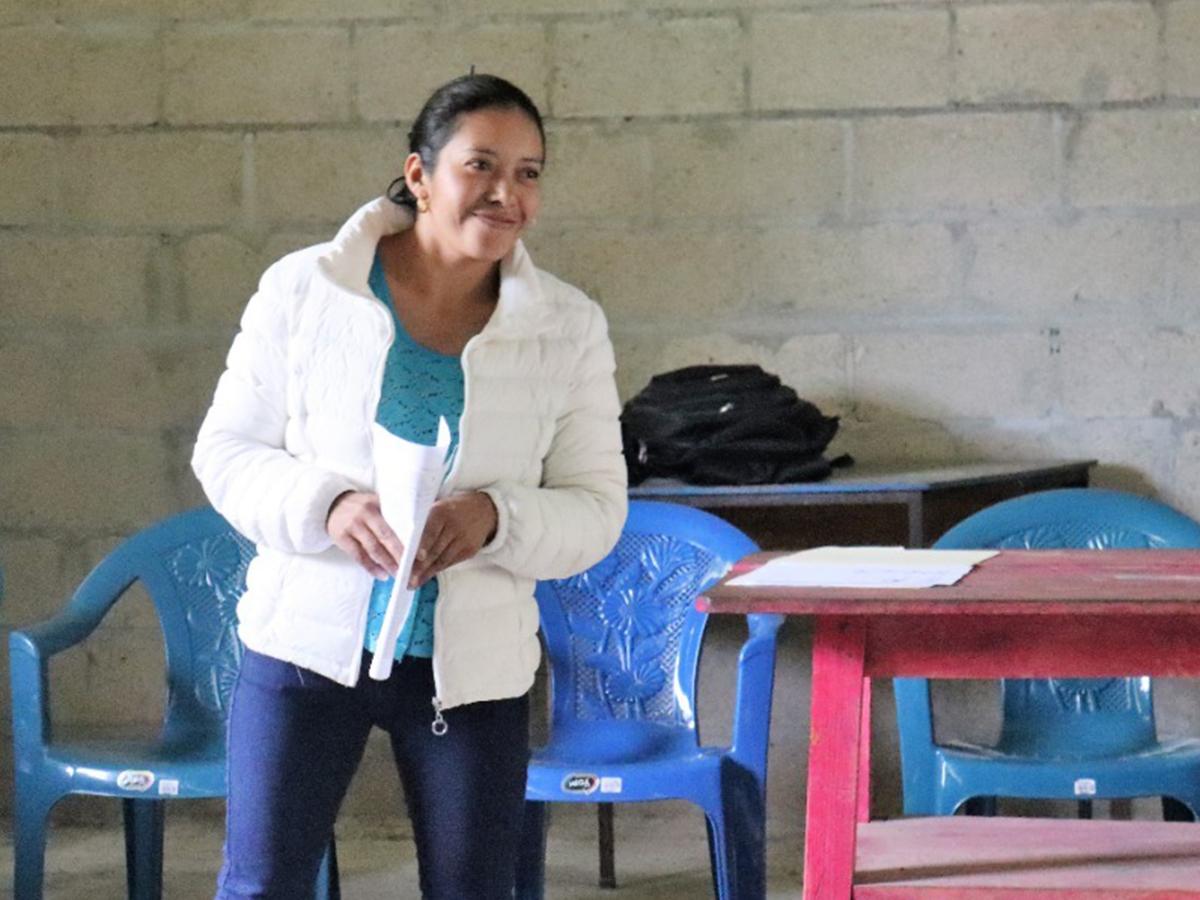
‘Our forests are beautiful, home to toucans, deer and orchids,’ remarks López. In recent years, however, more people have moved into the region. ‘Coffee cultivation has increased, and a lot of the forest has been cleared to make way for plantations,’ continues the mother-of-two, worry evident in her tone. But how can you get the message across to people who are reliant on subsistence farming and the income generated from selling coffee that the natural forest is more valuable than a coffee plantation that represents a significant source of earnings? López has her own strategy for dealing with this, one that is based on explaining the situation rather than condemning it. She tells listeners about the role that forests play in the water cycle and the likelihood that water will soon become a scarce commodity as a result of climate change.
The radio station has close links with the Universidad Indígena y de los Pueblos (UIP) in La Campa, an institution committed to preserving and sharing the knowledge passed down by ancestors. The university offers courses on indigenous rights, traditional medicine and spirituality. It has also developed a network of agricultural ecologists to help save traditional practices and lore, and combine them with modern methods. In turn, Radio Tenán broadcasts this valuable knowledge to the local population. This is what makes the station so popular, because it offers more than just educational content on the environment: it enables the indigenous people to work together to secure their cultural heritage and the future of their home community.
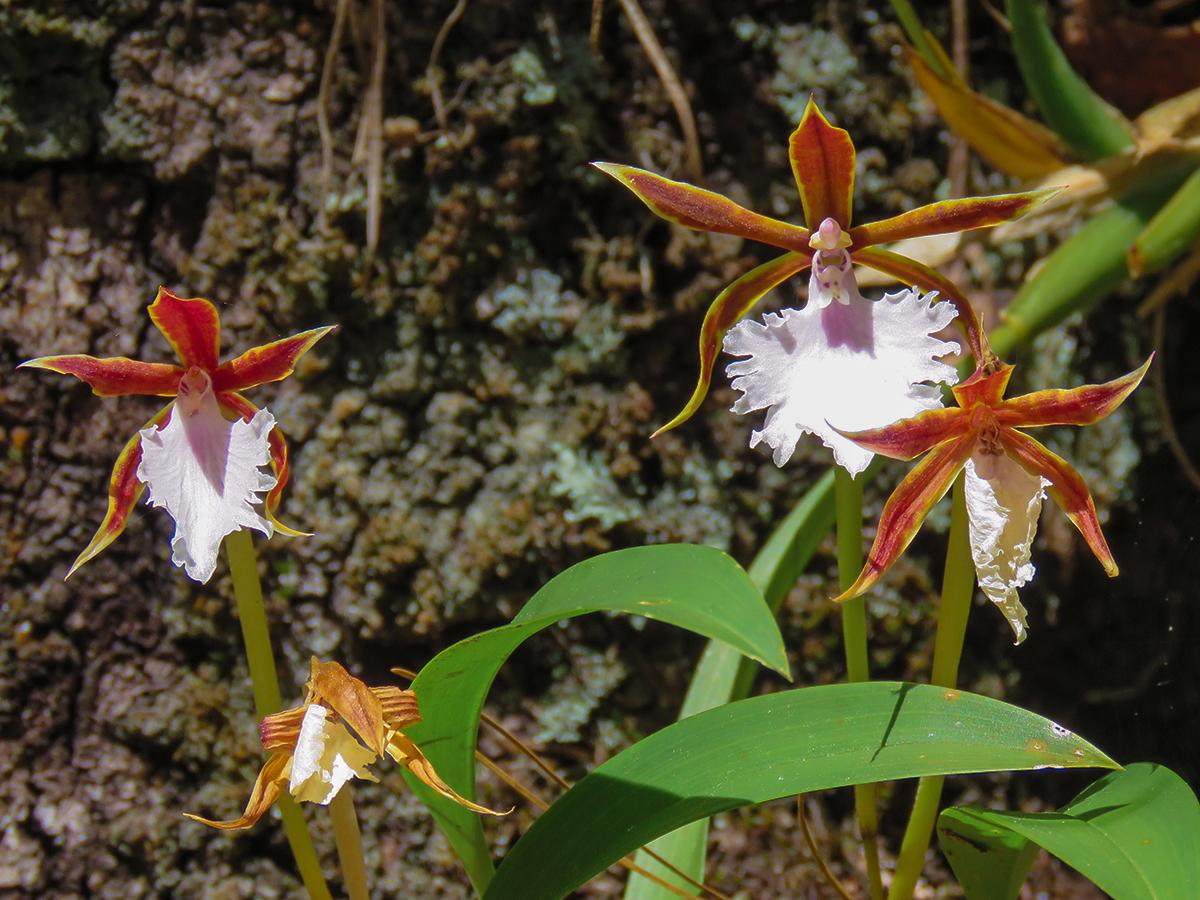
Encouraging people to get involved and follow the example of others
Martina López has a particular role to play in this. She acts as a link between the local administration, the university and the radio station. ‘Our short radio clips offering practical environmental tips have been hugely successful,’ she says. These highlight, for example, the importance of disposing of waste from coffee production properly, or diversifying crops to ensure a varied diet. The tips need to be presented in the simplest and most clearly comprehensible way possible. With this in mind, the Radio Comunitaria Tenán team has often spent considerable time carefully fine-tuning its slogans such as ‘Plant sugar cane instead of buying cane sugar!’. And their efforts have been successful. López notes with a smile that this particular phrase is now being heard more often from farmers at community meetings. She believes it is important to encourage the local people to get actively involved and follow the example of others in their community.
The team came up with the idea for the radio spots thanks to a training course funded by the Deutsche Gesellschaft für Internationale Zusammenarbeit GmbH (GIZ). ‘During the course we learned all sorts of useful tips on programme formats, editing and breathing techniques for presenters,’ explains López. In addition to the training itself, the team received microphones, a mixing desk and a new computer, since the old one had been destroyed by a lightning strike – and a lightning conductor to boot. Radio Tenán is being supported as part of the PROCAMBIO II project on sustainable management of resources in biosphere reserves, which GIZ is implementing in Honduras on behalf of the German Federal Ministry for Economic Cooperation and Development (BMZ).
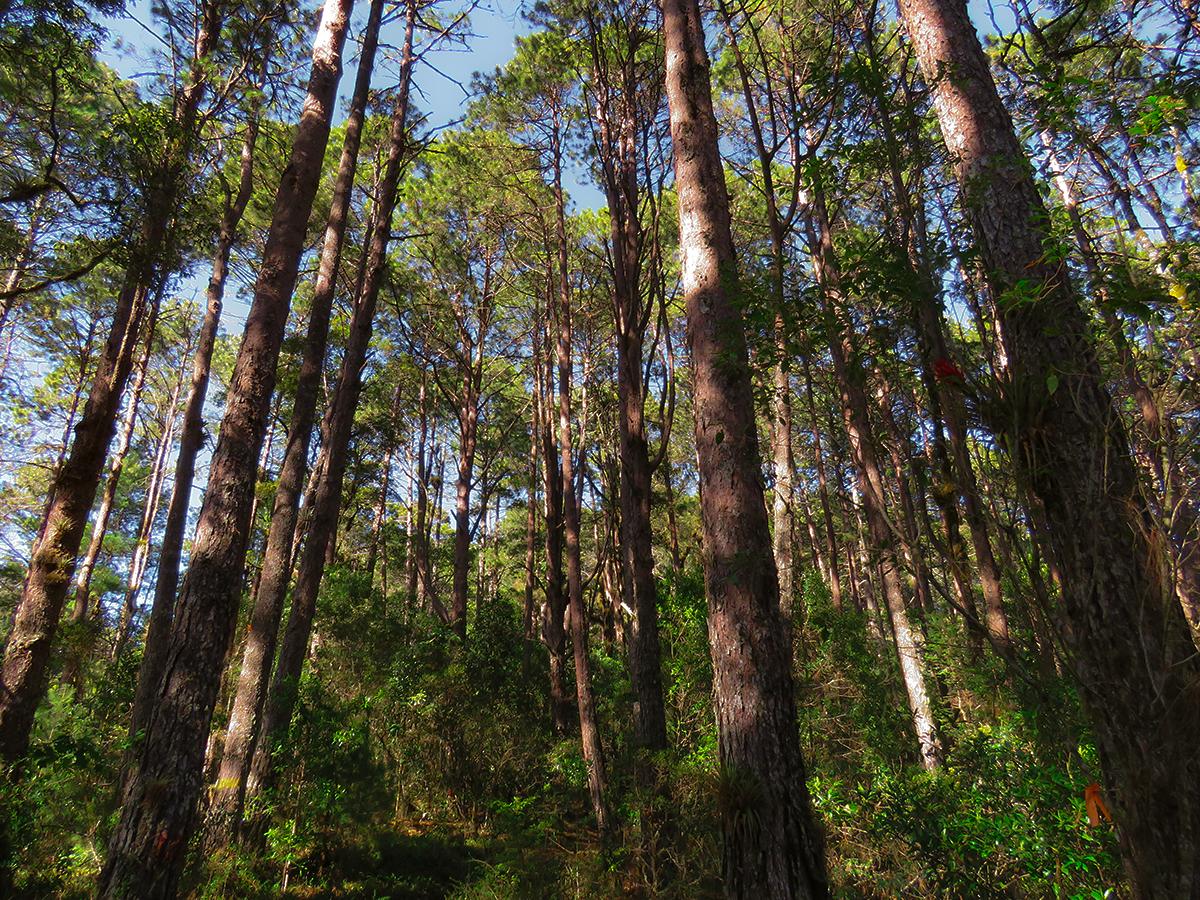
Work that demands courage
This support has proved extremely helpful to Radio Tenán, which relies exclusively on donations to survive and is staffed by volunteers. The station was originally set up by a group of volunteers in 2014. ‘We had no idea what we were doing and no money, but we had a lot of motivation,’ recalls López. She herself has to undertake a two-hour journey on foot to get from her village to the little wooden hut where the radio station is based. Or rather, she used to.
In early 2022, the station’s founder and director Pablo Hernández was murdered in San Marcos de Caiquín. Since then, López has been afraid and now only presents radio broadcasts when someone from the village can take her to the station by motorbike. It is not yet clear why Pablo Hernández was killed and who was behind his murder. Radio Tenán may be popular, but its frank and critical reporting is not to everyone’s taste. Drawing attention to issues such as local corruption and shady business in particular puts its staff in danger.
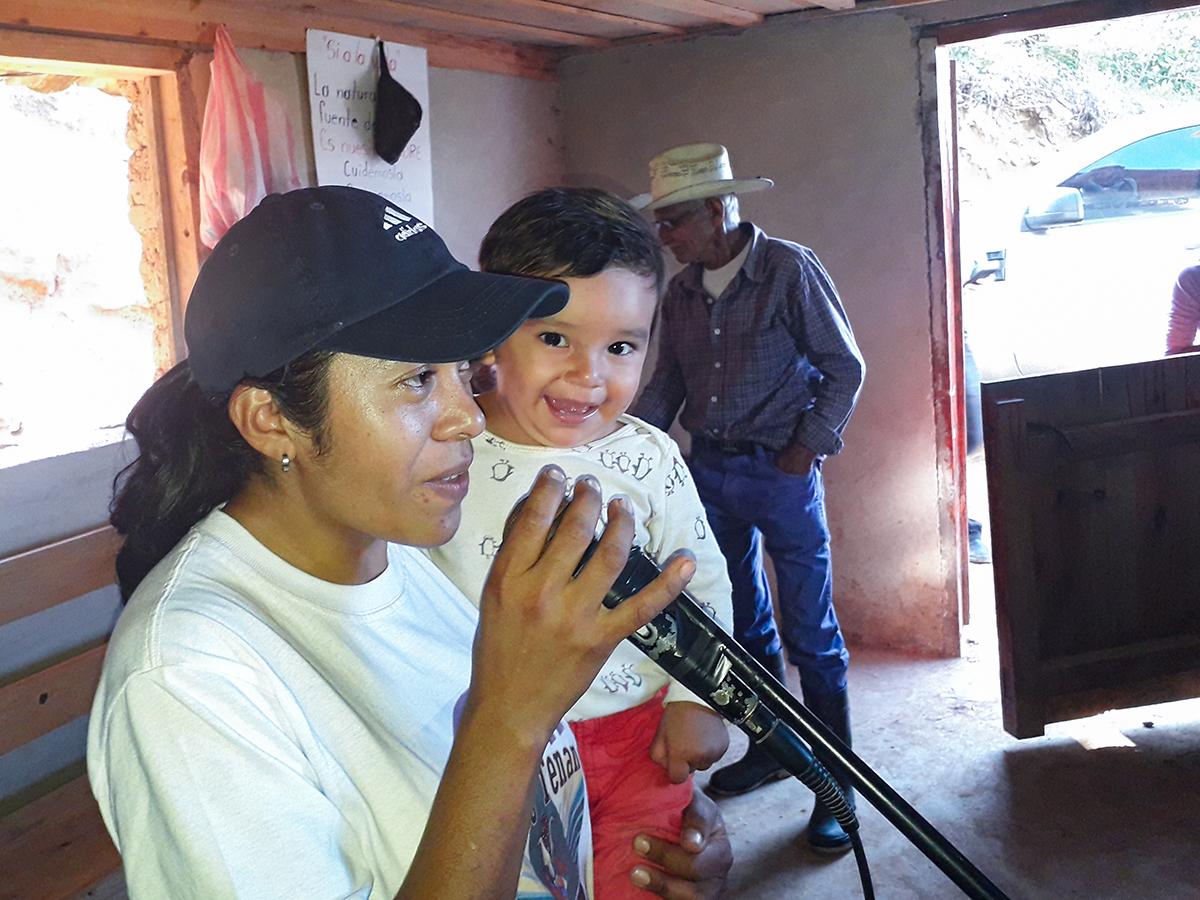
Protecting the environment is a sensitive matter in a country where exploiting natural resources is an important factor for the economy. The murder of Lenca activist Berta Cáceres in 2016 made that clear. Cáceres, a recipient of the Goldman Environmental Prize, organised a resistance campaign against the construction of a dam. The head of the dam’s operating company was convicted of her murder, along with a number of other company employees, corrupt government officials and members of the Honduran security forces. According to the international non-governmental organisation Global Witness, these murders are ‘not isolated incidents in a country that has always been considered one of the deadliest in the world for land and environmental activists’. It reports that 17 environmentalists were killed in 2020.
Boosting women’s self-confidence
As far as López is concerned, the radio plays a key role not only in terms of environmental protection, but also in the emancipation of women. Her own radio appearances have made her a role model for many people. After all, it is unusual for young Lenca women to speak out in public with such confidence, as this is a region where machismo and patriarchal structures are prevalent. López therefore often explicitly aims her broadcasts at women, taking up their concerns and encouraging them to get more actively involved in community life. She has found that women listeners are especially interested in topics such as natural therapies, for example. To prevent local medicinal plants from dying out, the forests need to be kept intact – so, time and again, it all comes back to protecting the environment. López is pinning her hopes above all on young people. Her biggest fan is her own daughter, nine-year-old Ana Raquel. ‘I would like to make it as far as you one day,’ she commented recently. For López, that has been the best praise of all.
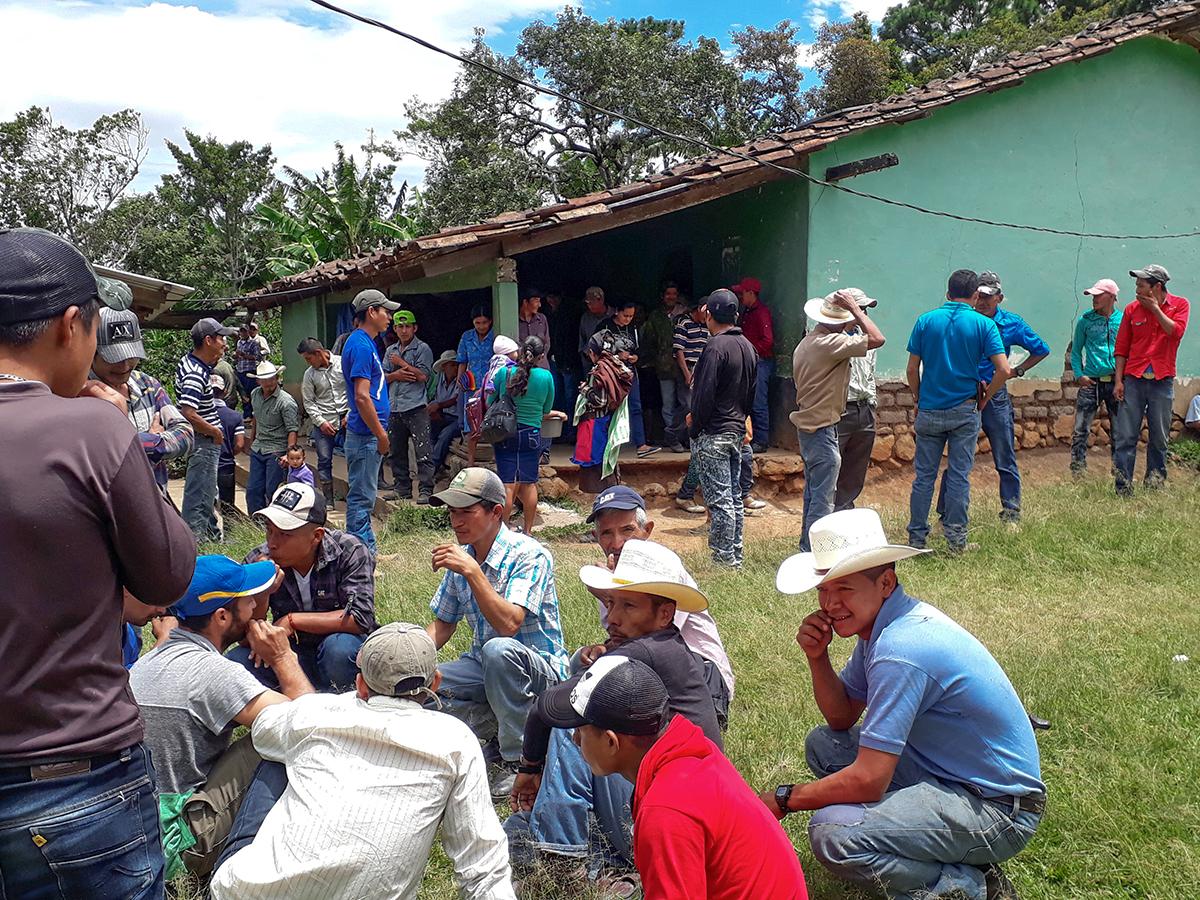
Weitere Informationen im Netz